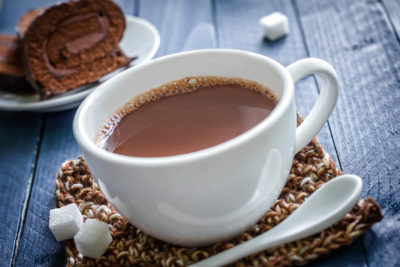Your Diet is not the first thing you think about when you consider ways to keep your lungs healthy. And keeping your lungs healthy has never been more important than it is now. We face the twin threats of flu season and the burgeoning threat of COVID-19.
In Search of Positivity and Control

A Fridge Full of Foods That Help You Breathe Better.
As we face the fact that the US has lost two hundred thousand lives to the coronavirus, much of our news is depressing. The doctors and staff at FLASS realize confronting the Twin-demic of COVID-19 and Flu Season, can tempt us to adopt a negative mood. Likewise, we know many people seem to have lost the feeling they can control their own health in any way. Thus, let’s focus this blog on something positive, an activity you can control.
Not a Restrictive Diet: Delicious Foods that Help You Breathe
In this article, the doctors, healthcare professionals, and staff of FLASS bring you a way to feel better. You can control some of your lung health at the most basic level. It isn’t medicine, treatment or surgery. It’s simply food, your nutrition.
A Surprising Connection: Diet and Healthy Lungs
Now, we know you already understand you cannot maintain your lung health if you breathe in cigarette smoke and environmental poisons. But are you aware that what you choose to eat, your healthy or unhealthy diet, can help or hurt your lungs?
A Healthy Anti-inflammatory Diet Supports Your Fight against Lung Disease
Do you suffer from asthma, chronic obstructive pulmonary disease (COPD), or pulmonary fibrosis? FLASS knows that you can enrich your quality of life with a nutritious diet.
“Research has shown that lifestyle modifications, including following a nutrient-rich diet, can help protect your lungs. Additionally, it can even reduce lung damage and symptoms of the disease.”
Did you know that science has identified specific nutrients and foods as “especially beneficial for lung function?” Below we are sharing a special shopping list for you. And the foods listed are not only healthy for your diet, they are widely celebrated for boosting lung function. Don’t think of these foods as part of “healthy eating” or “a healthy diet. Just think of them as delicious.
“A” is for Apples

Surprise Yourself With the Benefits of a Delicious Apple. It’s a Tempting Way to Be Kind to Your Lungs.
Some research has shown that the old saying about “An apple a day…” might have validity since the rosy fruit might help to promote good lung function.
“For example, studies show that apple intake is associated with a slower decline in lung function in ex-smokers. Additionally, consuming five or more apples per week is associated with greater lung function and a reduced risk of developing COPD.”
Researchers attribute this to “the high concentration of antioxidants in apples, including flavonoids and vitamin C.”
“B” is for Beets
Both beetroots and greens have compounds that are not only healthy, they actually make a healthy contribution to your lung function. Nitrates are the secret of the beet. Did you know the nitrates in beets relax blood vessels? They also can lower your blood pressure).
By the way, magnesium, potassium, vitamin C, and carotenoid antioxidants are the reasons your lungs love beets. You see, all of these vitamins and minerals are critical to healthy lungs.
“P” is for Pumpkins

Your Pumpkin is Part of Your Healthy Fall Diet… You Need Not Carve It. But, Health Demands You Eat Part of It.
This fabulous fall Fruit can be a delicious part of your autumn diet. Pumpkins contain “a variety of lung-health-promoting plant compounds. They’re especially rich in carotenoids, including beta carotene, lutein, and zeaxanthin — all of which have powerful antioxidant and anti-inflammatory properties.”
Research shows “that having higher blood levels of carotenoids is associated with better lung function in both older and younger populations.” It is even said that pumpkin is especially healthy for smokers. This is because smokers might have 25% lower concentrations of carotenoid antioxidants. So it makes sense that consuming carotenoid-rich pumpkins would make up for the deficiency.
“P” is Also for Peppers: Hot Stuff on Vitamin C
Spice up some of your diet with some nice heat because peppers are a huge source of vitamin C. Did you know that adequate vitamin C is an issue with people who smoke? Doctors often recommend that you have an extra 35 mg of vitamin C every day if you smoke. And you don’t have to put a lot of peppers in your diet. “Consuming just one medium-sized (119-gram) sweet red pepper delivers 169% of the recommended intake for vitamin C.” And that is very good for your lungs!
“O” is for Olive Oil
Diet and health experts have long praised the power of olive oil as part of a heart-healthy diet. Lungs as well as hearts appreciate this rich source of anti-inflammatory antioxidants, polyphenols, and vitamin E.
Donald Hensrud, MD, an associate professor of preventive medicine and nutrition at Mayo Clinic and medical editor-in-chief of The Mayo Clinic Diet,” stated, “Monounsaturated fat such as olive oil helps lower your risk of heart disease by improving related risk factors.”
He added, “For instance, MUFAs have been found to lower your low-density-lipoprotein cholesterol levels when substituted for saturated or trans-fats in your diet.”
However, FLASS wants you to remember that this healthy fat is still remarkably high in calories, so be conscientious about how much you use.
“C” is for Cocoa

Cocoa: Good for Your Lungs, Not to Mention Warm and Soothing.
As the nights turn chill in autumn, there are few treats as cozy or comforting as a nice mug of hot chocolate. You probably already know it’s very high in flavonoid antioxidants. But did you know it is also rich in theobromine, which helps relax the airways in the lungs?
In fact, Experts say that “Cocoa intake has been associated with a lower risk of allergic respiratory symptoms and may help protect against lung cancer.”
A Healthy Diet Means Healthier Lungs
To put it simply, a healthy diet that includes not only the above list of foods. But, it also includes coffee, dark leafy greens, fatty fish, tomatoes, oysters, and blueberries, which can foster healthy lung function. And not only are the above foods especially plentiful now, in the fall season but also they taste delicious.
Now you know at least some of the foods that will help you breathe better. Better breathing through the consumption of healthy nutrition might even lead you to more physically active exercise. –And your lungs will love you for that too.
Diet: Your Proactive Weapon in the Age of the Pandemic

Flu Shot Prevention Can Make It Seem Like Summer, All Winter Long.
Florida Lung, Asthma, and Sleep Specialists thank you for reading our blog. We hope this post has enlightened you and given you some support for positive action as you face the challenges of the flu season and COVID-19.

